psychological pricing
description: theory that certain prices have a psychological impact
14 results

Priceless: The Myth of Fair Value (And How to Take Advantage of It)
by
William Poundstone
Published 1 Jan 2010
—shows how many degrees of freedom such a complex pricing challenge can present. With complex billing plans, it is difficult to comparison shop (every plan is different) and nearly impossible to predict what a plan will cost. Choosing a phone plan becomes a judgment under uncertainty, mediated by loss aversion and heuristics. One of the most powerful tools of psychological pricing is the flat-rate bias. Consumers like flat rates, even when they cost more. A 2009 study by the Utility Consumers’ Action Network claimed that cell phone users in the San Diego area paid an average of $3.02 a minute for calls. That’s the price when you divide the aggregate amount paid by the number of minutes used.
…
In 2008 Taco Bell president Greg Creed wrote an open letter to rapper 50 Cent, asking him to change his name to “79 Cent,” “89 Cent,” or “99 Cent” to promote the chain’s low prices. The rapper responded with a lawsuit for the uncharming figure of $4 million—resulting in ample free publicity for both parties. A Macy’s ad from the November 2, 1890, New York Times. About 60 percent of the prices end in 9. Charm prices inaugurated the study of psychological pricing. In 1936 Columbia University’s Eli Ginzberg published a one-page note on what he called “customary prices.” “For many years, retail prices in this country have been quoted at one or two cents below the decimal unit—$.49, $.79, $.98, $1.49, $1.98, tell the tale.” Ginzberg reported on the informal experiment of an unnamed large retailer.
…
With money on the line, “the experimental zeal, even of a daring business man, was . . . held in check.” For nearly half a century, much informed opinion held that charm prices were a harmless superstition. This didn’t keep retailers from using them. By the 1980s, the Kahneman-Tversky revolution had revived interest in psychological pricing. In eight studies published from 1987 to 2004, charm prices were reported to boost sales by an average of 24 percent relative to nearby prices. Don’t take that quotable figure too seriously. The increase in sales varied from insignificant to over 80 percent. Take an experiment done by Eric Anderson of the University of Chicago and Duncan Simester of MIT.
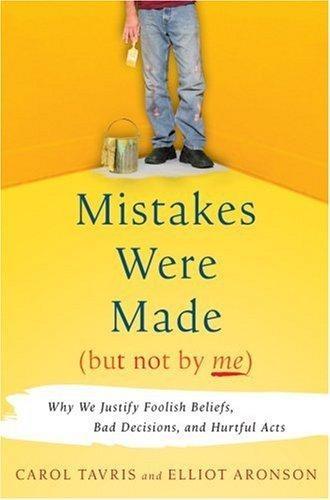
Mistakes Were Made (But Not by Me): Why We Justify Foolish Beliefs, Bad Decisions, and Hurtful Acts
by
Carol Tavris
and
Elliot Aronson
Published 6 May 2007
If the woman who believes she is unlovable meets a terrific guy who starts pursuing her seriously, she will feel momentarily pleased, but that pleasure is likely to be tarnished by a rush of dissonance: "What does he see in me?" Her resolution is unlikely to be "How nice; I must be more appealing than I thought I was." More likely, it will be "As soon as he discovers the real me, he'll dump me." She will pay a high psychological price to have that consonance restored. Indeed, several experiments find that most people who have low self-esteem or a low estimate of their abilities do feel uncomfortable with their dissonant successes and dismiss them as accidents or anomalies.23 This is why they seem so stubborn to friends and family members who try to cheer them up.
…
Oz didn't reckon with the power of self-justification: We are good people. Therefore, if we deliberately inflict pain on another, the other must have deserved it. Therefore, we are not doing evil, quite the contrary. We are doing good. The relatively small percentage of people who cannot or will not reduce dissonance this way pay a large psychological price in guilt, anguish, anxiety, nightmares, and sleepless nights. The pain of living with horrors they have committed, but cannot morally accept, would be searing, which is why most people will reach for any justification available to assuage the dissonance. In the previous chapter, we saw on a smaller scale why many divorcing couples justify the hurt they inflict on each other.

Home Game: An Accidental Guide to Fatherhood
by
Michael Lewis
Published 1 Jan 2009
For the tedious and messy bits of my childhood my father was, like most fathers of his generation, absent. (News of my birth he received by telegram.) In theory, his tendency to appear only when we didn’t really need him should have left a lingering emotional distance; he should have paid some terrible psychological price for his refusal to suffer. But the stone cold fact is his children still love him, just as much as they love their mother. They don’t hold it against him that he never addressed their diaper rash, or fixed their lunches, or rehearsed the lyrics to “I’m a Jolly Old Snowman.” They don’t even remember!

The New Trading for a Living: Psychology, Discipline, Trading Tools and Systems, Risk Control, Trade Management
by
Alexander Elder
Published 28 Sep 2014
When a stock closes higher, it shows that bulls won the day's battle; that day's volume is added to OBV. When a stock closes lower, it shows that bears won the day, and that day's volume is subtracted from OBV. If prices close unchanged, OBV stays unchanged. On-Balance Volume often rises or falls before prices, acting as a leading indicator. Crowd Psychology Prices represent the consensus of value, but volume represents the emotions of market participants. It reflects the intensity of traders' financial and emotional commitments, as well as pain among losers, which is what OBV helps to track. A new high of OBV shows that bulls are powerful, bears are hurting, and prices are likely to rise.
…
See also Downtrends; Uptrends advisors' following of and conflicting timeframes of markets created by crowds deciding to trade or wait defined effect of support or resistance on and factor of five in futures markets at hard right edge health of identifying on long-term charts moving averages indicating NH-NL and objective signals for trades and oscillator levels psychology of emotions in and mass psychology price shocks rallies and declines and social psychology and Stochastic signals time spent in trading ranges vs. timing of trades and and volume of trading Trend-following indicators Directional system MACD Lines in Triple Screen trading system Trendlines: diagonal subjectivity of TRIN Triple bullish or bearish divergences Triple Screen trading system choosing timeframes in day-trading entry technique screen Force Index in market tide screen market wave screen objective of Stochastic signals in stops and profit targets in trend-following indicators and oscillators True breakouts True Range (TR) Tulip Mania 12-step programs Twelve Steps and Twelve Traditions (AA) 20-day New High–New Low Index 2% Rule in futures markets as a guideline for pyramiding for institutional traders and Iron Triangle of risk control Two Roads Diverged: Trading Divergences (Alexander Elder) Tyson, Mike U Uncertainty Undecided traders Undercapitalization myth U.S. stock market: price cycles in trends in Unstuff Your Life (Andrew J.
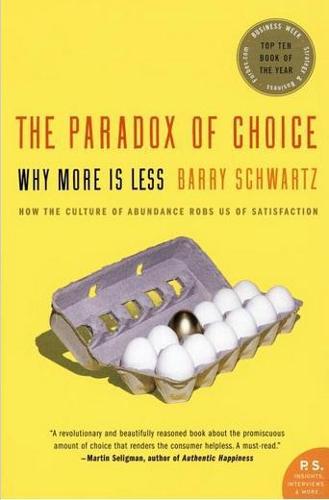
The Paradox of Choice: Why More Is Less
by
Barry Schwartz
Published 1 Jan 2004
However, those who had the option to change their minds were less satisfied with their choices than participants who did not have that option. And, perhaps most important, the participants had no idea that keeping the option open to change their minds would affect their satisfaction with the things they chose. So keeping options open seems to extract a psychological price. When we can change our minds, apparently we do less psychological work to justify the decision we’ve made, reinforcing the chosen alternative and disparaging the rejected ones. Perhaps we do less work putting opportunity costs of the rejected alternatives out of our minds. After all, if you put down a nonrefundable deposit for a house on Martha’s Vineyard, you focus on the beauty of the beach and the dunes.

Social Class in the 21st Century
by
Mike Savage
Published 5 Nov 2015
Many expressed a sense of being caught between two worlds, constantly juggling contradictory sources of identity. Thus, while the contemporary experience of upward mobility in Britain may involve indisputable gains in economic capital and social status, it is important to consider that such benefits can often come with a considerable psychological price tag. Michael Young’s satire on ‘the rise of the meritocracy’ focused mainly on the power of the school system to differentiate children on the basis of their IQs and said little about the significance of universities in affecting future careers. He wrote at a time when only 5 per cent of children went to universities.
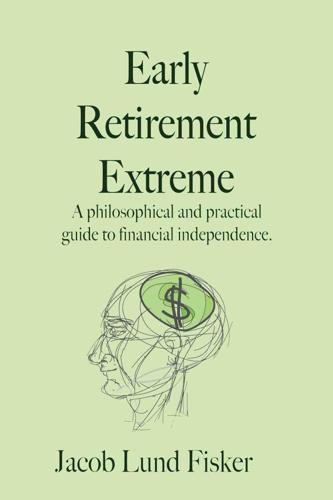
Early Retirement Extreme
by
Jacob Lund Fisker
Published 30 Sep 2010
This person would pay a steep price32 by outsourcing this to professionals without at least understanding the basics of money management himself. In fact, outsourcing is a financial decision that should not be made blindly. Economic goals for someone aspiring to be a Renaissance man are to understand the difference between price and value. Value is psychological; price is determined by the market. learn to consider more than the immediate consequences of a choice. Also consider the future consequences--for example, opportunity cost and the time-value of money. Learn to see the unseen. learn to consider more than the consequences of a choice for just one group of people, but for all others as well.

Israel: A Simple Guide to the Most Misunderstood Country on Earth
by
Noa Tishby
Published 5 Apr 2021
One of the first questions people ask me about Israel is “Isn’t it dangerous?” And even though the country feels as safe as Venice Beach (if not more so), I get where the question is coming from. Israel has had its fair share of wars, and the international media eats them up. After all, “if it bleeds it leads.” But there is a long-lasting psychological price humans pay, hiding behind the headlines, and it plays out in every Israeli and Palestinian household. This chapter is also meant to illustrate how the “recent conflict” is not recent at all. It isn’t dependent on this government or another, with this policy or the other. The main thing to understand, both when talking about the wars and the regional psychology for peace attempts, is that Israel has always fought for her existence, but her enemies have changed throughout the years.

Understanding Sponsored Search: Core Elements of Keyword Advertising
by
Jim Jansen
Published 25 Jul 2011
So, a high-priced product is viewed superior in quality to a similar product priced for significantly less. Fractional pricing is the practice of costing products in odd prices or a little less than a higher round number (e.g., $9.99, $19.99, $7.97, etc.). Fractional pricing is based on the psychological pricing theory that consumers ignore the last digit and do not properly round up. Promotion.╇ Promotion includes all the channels and media used by a business to communicate to customers about its products or services. Promotion is how a business markets and sells products or services. Naturally, a business must balance communicating effectively while also being cost efficient.
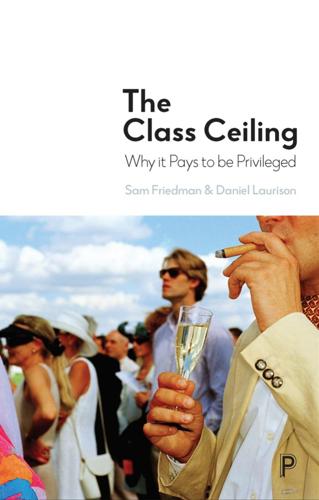
The Class Ceiling: Why It Pays to Be Privileged
by
Sam Friedman
and
Daniel Laurison
Published 28 Jan 2019
The issue of self-elimination also highlights, more broadly, the profound emotional imprint that goes hand-in-hand with upward social mobility. While this impact is sometimes worn 173 The Class Ceiling lightly, as a reminder of how far one has come or what they have achieved, for the majority we interviewed ‘success’ came at a considerable psychological price. Upward journeys, we found, had often been difficult, uncomfortable, painful even. These emotional costs, we contend, are very important to understand. Not only do they constitute hidden injuries7 that may explain why some prefer not to reach for the top, but they also reveal the limits of the current political fetish for social mobility.

Libertarian Idea
by
Jan Narveson
Published 15 Dec 1988
At some point a tax becomes confiscatory or prohibitive, and few would deny that it then constitutes a genuine infringement of freedom. But before that point, what do we say? An important special case is that of moral pressure. Suppose I am a friend of yours and you know that I won‟t like it if you do x. This doesn‟t keep you from doing x at all, but it increases, as it were, the psychological price of doing it. Libertarians have a real problem here, for on the one hand they want to say that an individual has freedom of conscience (itself a vexed area); yet on the other, they can‟t easily say that we may blame anyone we please for just anything. If Jones has a perfect right to do x, can we blame Jones for doing x?
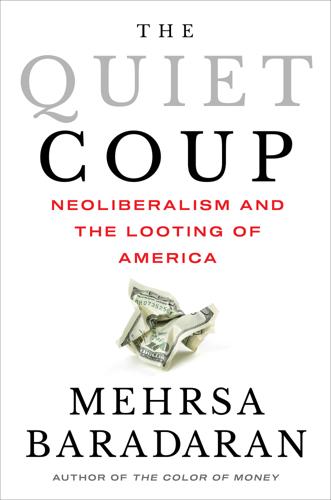
The Quiet Coup: Neoliberalism and the Looting of America
by
Mehrsa Baradaran
Published 7 May 2024
This theory credited the market with rationality, coherence, and accuracy that could not be matched. The way to know the true value of anything was to observe its market price, which held within it not just the predicted future but all the information about the company and its competition at any given time. The notion of “accurate” pricing assumed that markets were more science than psychology. Prices were bequeathed with an omniscience that no human—and certainly no government bureaucrat—could approach. The market would punish the weak and bless the strong. Market discipline would be meted out through declining stock prices. Despite having been debunked by other economists, such as Robert Shiller (who shared the 2013 Economics Nobel with Fama), the entire field of behavioral economics, and real-life events like asset bubbles and other such irrationalities, Fama’s theory inspired many of the policies of the neoliberal era.

The Battle of Bretton Woods: John Maynard Keynes, Harry Dexter White, and the Making of a New World Order
by
Benn Steil
Published 14 May 2013
An astute, dedicated career diplomat would have played off the New York bankers, who were dangling loans in return for British opposition to the U.S. Treasury’s monetary reform plans, against FDR’s moneymen. But Keynes had a legacy to think of, and his place in the Bretton Woods pantheon was critical to it. The psychological price he paid for his persistence was bouts of a Stockholm syndrome variant, whereby he would persuade himself—and, with his unmatched rhetorical skills, the political class in London—that the American government, for all its intolerable legalism and defiance of reason, truly meant well and would do the right thing by Britain in the end.
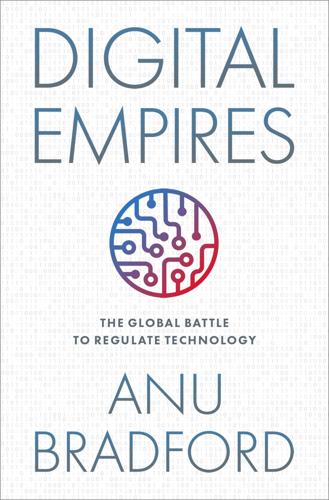
Digital Empires: The Global Battle to Regulate Technology
by
Anu Bradford
Published 25 Sep 2023
One Google moderator estimated having to filter through 15,000 images a day, including images of child pornography, beheadings, and animal abuse.12 In 2020, Meta settled a lawsuit brought by over 10,000 of its content moderators, agreeing to pay $52 million in mental health compensation.13 Content moderators pay an enormous psychological price in helping to keep the platforms safer and more civil for users around the world, but their plight also lays bare the distance between the highly compensated and powerful tech executives in Silicon Valley and the behind-the-scenes labor employed to scour the internet for harmful content. This human toll further calls into question the early, techno-optimist vision of the internet as an emancipatory force that would inevitably dismantle existing institutions of power and lead to a “more humane and fair” world.14 Another reason to be concerned about the concentration of power among a few tech companies relates to their collection of user data as part of their business model and the impact of that data collection on user privacy.